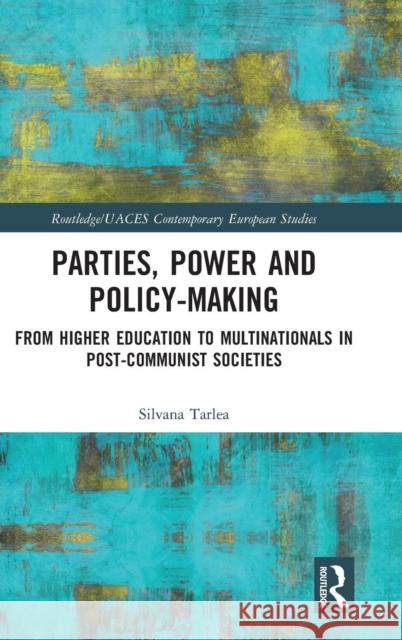Parties, Power and Policy-Making: From Higher Education to Multinationals in Post-Communist Societies » książka
Parties, Power and Policy-Making: From Higher Education to Multinationals in Post-Communist Societies
ISBN-13: 9781138047235 / Angielski / Twarda / 2019 / 148 str.
Parties, Power and Policy-Making: From Higher Education to Multinationals in Post-Communist Societies
ISBN-13: 9781138047235 / Angielski / Twarda / 2019 / 148 str.
(netto: 699,68 VAT: 5%)
Najniższa cena z 30 dni: 705,23
ok. 22 dni roboczych.
Darmowa dostawa!
Little is known about the likely influences of these parties on public policies and if and how they have responded to expectations of voters when deciding on policies. This book explains the conditions under which political parties have played a central role in policymaking, and influencing economic growth, in post-communist European countries, highlighting two essentially related areas: higher education and international trade and investment. It illustrates how these countries have become reliant on multinational companies (MNCs), given their governments' strategy to attract foreign capital, how political and economic factors are intertwined and how political parties in power can have a strong influence on the growth prospects of these economies. Furthermore it illuminates the extent to which political parties use their space for maneuver when enacting policies and to which they respond to their constituencies when doing so. It shows how structural conditions such as the dependence on MNCs influence policies, and how this pattern varies across East-European countries. The book brings political parties back into the discussion on political economy and back into the analyses of welfare politics, varieties of capitalism, and democratic capitalism. This text will be of key interest to scholars and students of comparative politics and comparative political economy, European policy-making, Central and Eastern Europe, Trade, welfare and development, and Higher Education.











